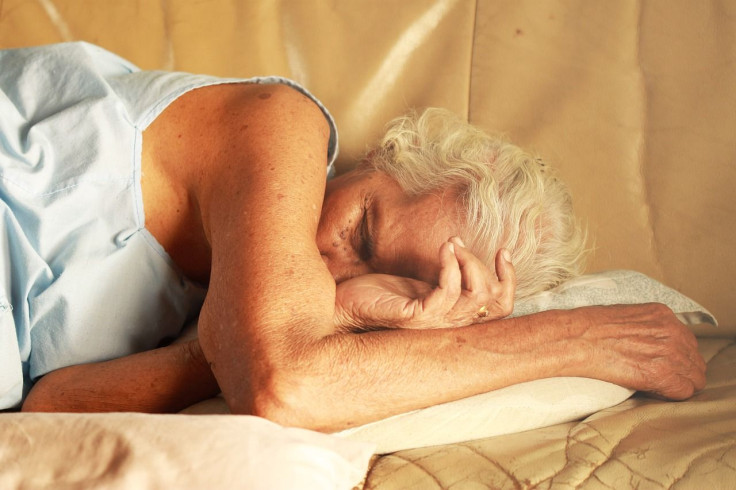Symptoms That Manifest During Sleep Indicating A Deadly Brain Condition

KEY POINTS
- Dementia is a disease that usually affects the elderly
- Early detection of the symptoms could help in implementing intervention measures to minimize the effects
- One of the early symptoms shows during sleep
Dementia is a collective used to describe a group of progressive brain ailments affecting people uniquely. Common symptoms of this disease include habitual forgetfulness and trouble concentrating. There are, however, warning signs appearing during sleep, indicating the development of the condition. What are these signs?
Dementia and Sleep
Dementia UK’s Admiral Nurse Professional Rachel Thompson has revealed how the brain condition affects your sleep. Sleeping pattern troubles are common in people with dementia. For those suffering from Lewy Body dementia, warning signs include having night terrors or nightmares and uncontrolled limb movements or restless leg syndrome.
Behavioral changes that register when you or a loved one suffers from the condition include frequent waking up, getting out of bed, or an increased level of confusion or disorientation.
Determining Dementia-related Sleep Disturbances
Nurse Rachel said sleep disturbances might be a phase that a person suffering from dementia goes through and will subside or settle in time. To reduce the possibility that such sleep disturbances may be due to environmental factors, there are a few things to consider.
First, is the bedroom dark and quiet? Second, is the bedroom temperature comfy? According to the National Sleep Foundation, the optimal temperature of a bedroom to get a restful sleep is 15 to 19 degrees.
Other Signs of Dementia
Dementia UK said that the condition occurs when the brain’s nerve cells sustain damage. Common symptoms include decreased cognitive ability, memory problems, and having trouble with communication.
The National Health Service further expanded the list to include difficulty in concentrating, struggling to find the right word when communicating, or having difficulties in following a conversation. The NHS also said that dementia symptoms also include finding trouble in carrying out familiar daily chores like getting confused over the total purchase price when shopping.
A sudden mood change is also among the early symptoms of dementia, and at a later stage, sufferers may become confused about the place and time. Those who have dementia with Lewy bodies have a higher tendency to experience disturbances in their sleep.
According to Alzheimer’s Research UK, sleep disturbances may include having vivid dreams to the point of moving or shouting out while fast asleep. The charity organization said that dementia with Lewy bodies is among the most common types of dementia.
Other upsetting symptoms of dementia with Lewy bodies include experiencing visual hallucinations. The really worrisome part is that such visual hallucinations, as revealed by Alzheimer’s Research UK, can happen repeatedly and are often well-formed and realistic. If you or a loved one is experiencing these symptoms, it is a good idea to see your doctor and discuss possible treatment options.
© Copyright IBTimes 2024. All rights reserved.





















